There's A Small Chance For Mahathir’s New National Car To Succeed, Here's Why
InsightsAt the ongoing 24th International Conference On The Future Of Asia Conference in Tokyo, Japan, Prime Minister Tun Dr. Mahathir Mohamad reiterated his intention to start another Proton, which has since been sold to China’s Geely during his predecessor Najib Abdul Razak’s administration.
Mahathir’s intentions, noble as they maybe, flies in the face of accepted wisdom that says the window of opportunity for governments to be directly involved in the highly competitive automotive industry is already over. Even China has removed all forms of protection to its domestic manufacturers, allowing foreign brands to take full ownership their operations in China.
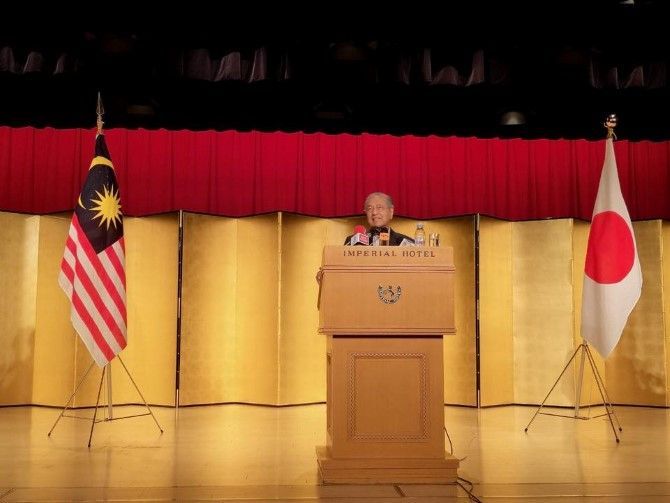
It will be pointless to spend tax payers’ money to build yet another national car because the Chinese are already doing it cheaper, better, and faster. Nevermind about Chinese car companies, because even China's Internet search engine giant Baidu is already developing softwares for self-driving cars.
So then why the headline that suggests otherwise? It’s because we are now in the cusp of a once in a hundred years revolution that threatens to disrupt everything we’ve come to constitute as the car industry – from manufacturing to retail, to the concept of private car ownership, to replacing the human driver with artificial intelligence – all cornerstones of the industry are being threatened by the fast developing field of Internet connectivity, artificial intelligence and electric mobility. For a short period of time, the gap in technical abilities are being reduced. Carlist.my believes that this once in a century upheaval is also opening up a small window of opportunity for new entrants, giving Dr. Mahathir a rare second chance to fix what went wrong with Proton version 1.0.
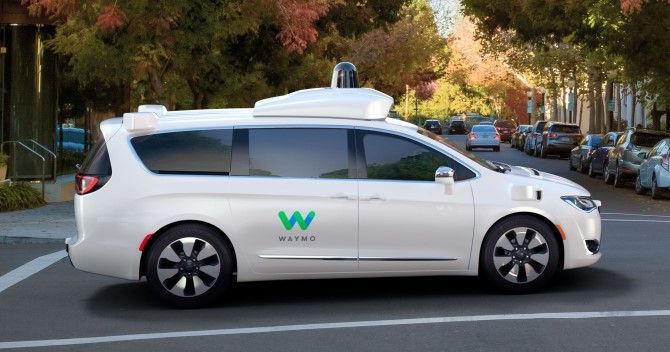
For the first-time since Karl Benz’s Patentwagen 1886, young upstarts like Tesla or even Google's Waymo, companies with zero experience in manufacturing, are finding themselves in a position to challenge a 130 plus year old Daimler who invented the automobile because the cars of the future will be driven by electric power and artificial intelligence, areas that are unfamiliar to traditional car companies.
The future of the automobile industry is one where consumers won't need to buy a car but to only pay for it every time they use one. They will book for one with their smartphone every time they need a car. Think of it as a driverless Grab. There's no maintenance fees, no high downpayments or bank loans, and best of all, no problems with parking. Internet companies love it but traditional car makers have to adapt. Hardware will be commoditized but software will be proprietary, which leads us to the next point.

Part of the reasons behind Proton’s failure was that our small domestic market simply cannot support a sustainable car manufacturing company. But if we are to re-define our national car as one that uses Malaysia-developed software and know-how (which our local talents at Proton have more than the general public gives them credit for), built with hardware from China, made to Malaysian requirements, we can still have a car company without being burdened with an underutilize factory, in the same way Apple doesn’t own any iPhone factory. Forget about combustion engines. It's time to relook into what Mahathir's original vision for the Multimedia Super Corridor was supposed to create.
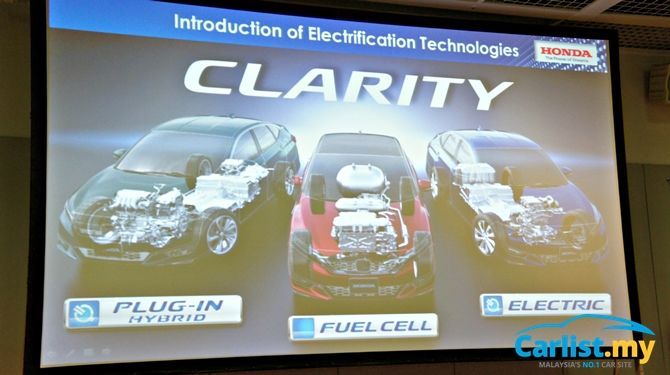
Every manufacturer agrees that electrified vehicles – whether pure Battery Electric Vehicles (BEVs or EVs) or hydrogen fuel-cell electric vehicles (FCVs) – can only succeed with generous government support. In other words, this is one area where direct government involvement is actually welcomed rather than resented. Without investments by the government to build the necessary supporting infrastructures like charging stations, and tax rebates to reduce the high cost of such vehicles, the industry will be permanently stuck in a chicken-egg situation. But why stop at infrastructures if a Malaysia national car company can be directly involved in deciding what works best for Malaysia, rather than letting some Internet startup from California or Munich deciding on our behalf.
So are we suggesting that our next national car should focus on EVs? Not quite, yet. There are several problems with EVs, many of which are already becoming clear to policy makers in Europe, Japan and China.
Even the fastest Level 3 electric car chargers available today takes up to 30 minutes for a full charge. Even if we assume that the future improvements will halve that to 15 minutes, it’s still far too long. Even in Germany, the powerhouse of all things automotive, nobody has an answer to how are consumers going to charge their EVs. It is fairly common for Germans to park by the road side. A garage or a car porch is a luxury for many German city dwellers.
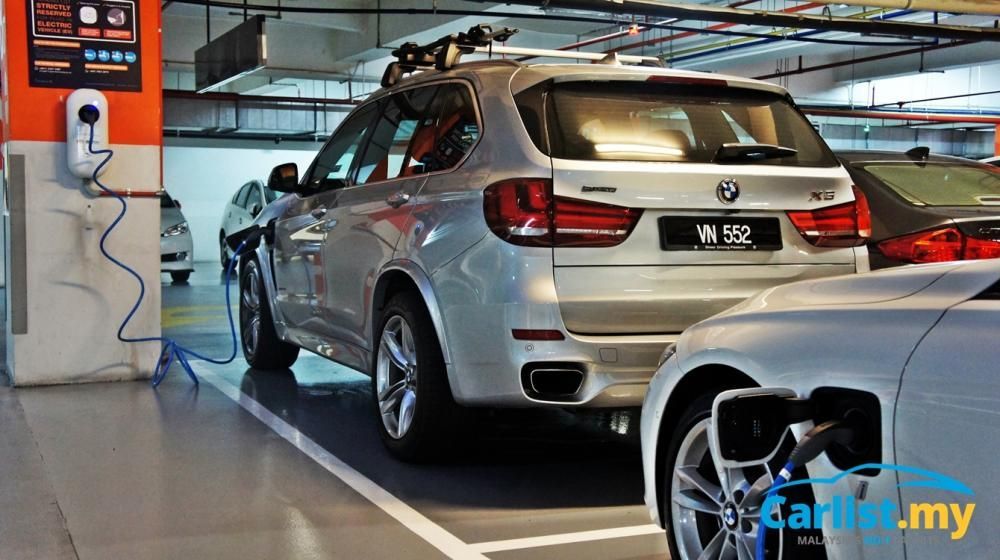
Urbanization is only going to become more intense and more people are going to stay in a high rise buildings. Installing a EV charger, even wireless ones, on every parking bay in every multi-storey car park is simply unrealistic.
Realizing this, the Japanese government are throwing their support behind hydrogen fuel-cell electric vehicles or FCVs. These are electric vehicles that generate their own electricity by combining hydrogen with oxygen. The only emission from the exhaust tip is water vapour. Hydrogen can be generated from a variety of sources, even organic garbage! It's a path to an almost utopian reality.
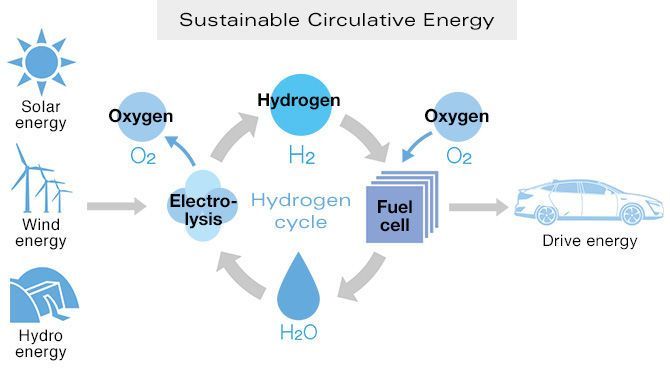
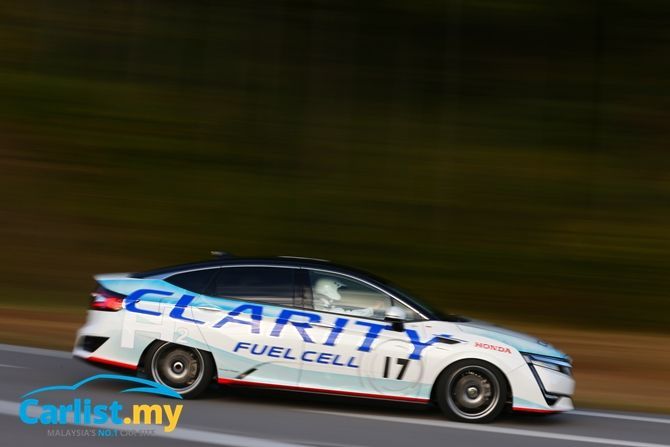
An average FCV takes about 3 to 5 minutes to refuel, well within acceptable limits. A full tank of hydrogen gives a range of around 500 km. At present technology, that’s three times the range of an average electric vehicle like a Nissan Leaf.
The challenge for FCVs however, is that electricity is easily available but compressed hydrogen isn’t, even though the element is all around us. Building a hydrogen refueling station and resupplying it regularly is a lot more complicated than setting up chargers for EVs. However, Honda has already solved the problem with its standalone Smart Hydrogen Station (SHS). It takes up no more than 2 parking lots, and can use solar energy to generate hydrogen from rain water, and can be setup in a matter of days.
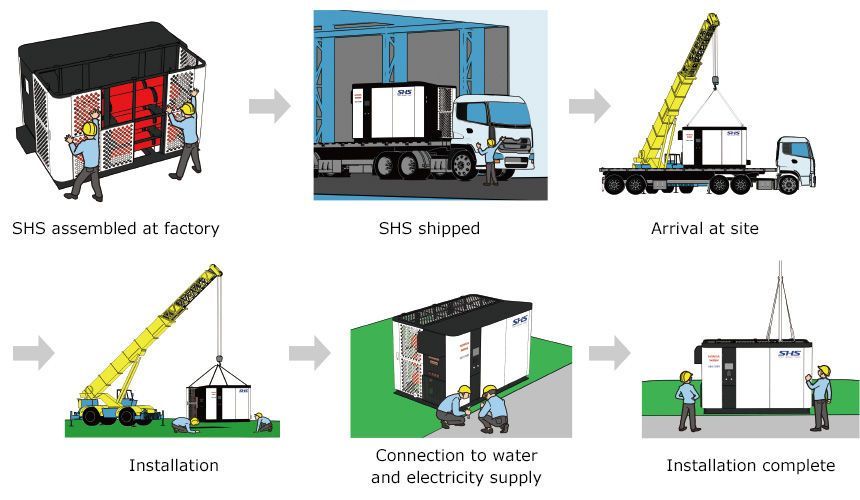
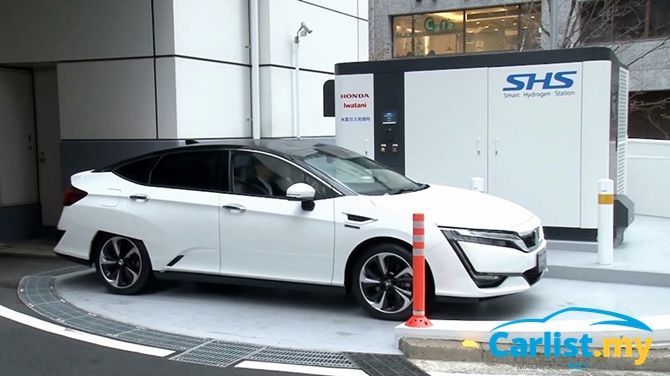
Since Tun Dr. Mahathir have made a lot of overtures in aligning Malaysia with Japan, as sort of a follow-up to his earlier Look East policy, he will find a convenient supporter in the form of Toyota.
Although Toyota is currently a forerunner in FCV technology, it sees no benefit in being a leader in a market that’s too small to matter. For a limited time between now until 2020, Toyota is opening up almost all of its patents related to FCV technology, making it available for free to anyone interested. It's a once in a century offer. More importantly, Toyota’s patents related to supporting infrastructures like hydrogen stations will be remain available indefinitely for free.
Tesla also offers a portion of its patents for EVs free but reading Elon Musk's true intentions is trickier and between EVs and FCVs, the latter offers a better long-term solution.
In other words, Malaysia has a tiny window period of a few years to put its foot in on the next step in evolution of cars. We can leverage on our strong ties with Japan and Toyota's willingness to share their knowledge, and designate certain key locations in Malaysia as real-world test zones for self-driving cars.
Currently, the closest centre for the development of self-driving cars in this region is Singapore, which tech guru Chris Anderson (ex-Wired magazine) poked fun of:
Really, just look at these perfectly painted lines and black-and-white marking of all the curbs. It's like training wheels for self-driving cars pic.twitter.com/2l2V2mNJRQ
— Chris Anderson (@chr1sa) June 4, 2018
Following the visit by Tun Dr. Mahathir, Japan’s Prime Minister Shinzo Abe has announced that his government’s Japan Bank for International Cooperation will provide a USD 50 billion fund to boost infrastructure investment in Asia. Separately, the Managing Director of the Malaysian office of the Japan External Trade Organization (JETRO) Akira Kajita have confirmed with The Edge Financial Daily that electric vehicles is one area that Japan hopes to cooperate with Malaysia in.
If Dr. Mahathir played his cards right, he might just be able to redeem his blunder with Proton. We can be South East Asia's core competency centre for self-driving FCVs, and have an opportunity to actively influence the technology path for our country's benefit. Waymo have shown us that you don't necessarily have to be burdened with factories and manufacturing to be in the car business. A technology that works in our challenging climate and chaotic urban traffic will certainly work well in many parts of the world.
As for the rakyat, if Tun can lead us to our own tax-free Malaysia-developed self-driving zero emission vehicle, why not?